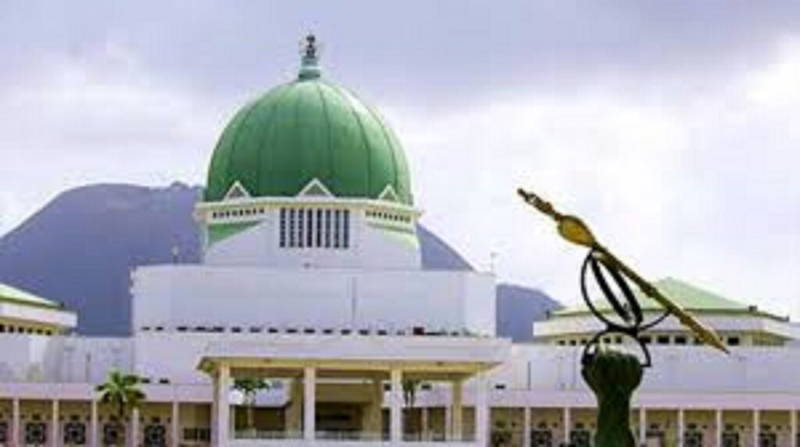The National Assembly and civic tech organization BudgIT are currently in disagreement over the reported inclusion of over 11,000 projects totaling N6.93 trillion in the 2025 federal budget.
BudgIT, known for promoting fiscal transparency, issued a statement on Monday accusing lawmakers of adding 11,122 projects that were not originally proposed by the executive branch. These projects, the group argued, do not align with the Medium-Term National Development Plan (2021–2025) or the nation’s core priorities.
According to BudgIT, the insertions range from multimillion-naira boreholes to ICT centres and street lighting initiatives. The group claimed that 238 projects, each exceeding N5 billion, amounted to N2.29 trillion alone. Another 984 projects worth N1.71 trillion and 1,119 more ranging between N500 million to N1 billion—totaling N641.38 billion—were allegedly added without solid justification.
In a deeper analysis, BudgIT said 3,573 of the projects worth N653.19 billion were assigned to federal constituencies, while 1,972 projects worth N444.04 billion were allocated to senatorial districts. Notably, they revealed that nearly 40% of the added projects—4,371 worth N1.72 trillion—were funneled into the Ministry of Agriculture’s budget, ballooning its capital budget from N242.5 billion to N1.95 trillion.
“Shockingly, 39% of all insertions, 4,371 projects worth N1.72 trillion, were forced into the Ministry of Agriculture’s budget,” the organization stated, also noting unexplained surges in the budgets of the Ministries of Science and Technology, and Economic Planning.
Further, BudgIT criticized the use of agencies like the Nigerian Building and Road Research Institute and the Federal Cooperative College, Oji River, as alleged channels for projects unrelated to their original mandates. The college, for example, was tasked with executing rural electrification and distribution of utility vehicles despite being a training institution.
Country Director Gabriel Okeowo warned that the budget process is now being abused, saying: “The insertion of over 11,000 projects worth N6.93 trillion into the 2025 budget by the National Assembly is not just alarming, it is an assault on fiscal responsibility.”
BudgIT also criticized the silence of the Presidency despite being notified of the concerns. “Despite these findings, the Presidency has remained conspicuously silent,” the statement read.
In response, the National Assembly rejected the accusations. Senator Yemi Adaramodu, Chairman of the Senate Committee on Media and Public Affairs, described the claims as “spurious” and aimed at discrediting the legislature. He insisted that the budget was reviewed and passed based on the figures submitted by the executive.
“The 2025 Appropriation Bill was presented by the executive, interrogated, and passed, based on the exact amount presented,” he said.
Meanwhile, Clement Jimbo, Deputy Chairman of the House Committee on National Planning and Economic Development, dismissed BudgIT’s claims as “completely false.” He reiterated that the National Assembly has constitutional powers to modify the budget and that lawmakers do not act unilaterally.
He said: “The National Assembly is the arm of government the constitution has empowered to make laws. There is no other arm of government that is saddled with that responsibility.
‘’We make the law, including the budget. The budget the Presidency sends to the National Assembly is called an estimate, it is not yet law until we pass it.”
Jimbo stressed that the legislature has the constitutional powers to modify the budget proposals sent by the executive, including additions and subtractions, to reflect the aspirations of Nigerians.
“If what the executive sends to us is not in tandem with the aspirations of Nigerians, we can change it. Make no mistakes about that. We have the power to change it, amend it, subtract and add. That power is the exclusive right of the National Assembly,” he stated.
Citing an example, Jimbo, who pointed to a recent disagreement over tax legislation, said: “The executive proposed that VAT be increased by 2.5%. We said no, let it remain at 7.5%. The way we treated that is the same way we handle the national budget.”
He expressed strong disapproval of recent reports suggesting that lawmakers arbitrarily padded the budget, calling such narratives misleading and factually incorrect.
The lawmaker added: “I completely disagree with them (BudgiT). It is completely based on ignorance.
‘’The executive cannot send a budget of N50 billion, and we just approve N50 billion. It is practically impossible. If we did that, we would be reducing ourselves to mere rubber stamps.”
He also offered insight into the legislative budget process, noting that the estimates were reviewed by nearly 200 specialised committees in the House of Representatives, each interfacing with corresponding government ministries, departments and agencies, MDAs.
“This is what is called budget defence. If agencies cannot justify their budget proposals, based on previous performance, the National Assembly has the power to slash what they’re asking for. Equally, we have the power to increase the budget for agencies that have been underfunded,’’ he said.
While debunking claims that individual lawmakers could unilaterally divert funds to favoured regions or interests, Jimbo said: “No one senator or House member can sit down and say the budget of a particular region should be channelled to favour anybody. It’s completely false.
‘’I have participated in the 2023 supplementary budget, 2024, and now the 2025 budget, I have never seen such a thing.”
He reiterated that the recent report alleging budget padding by the National Assembly is “false, to the extent of irresponsibility,” and called for greater public understanding of the legislative process.
“This is not a difficult thing for Nigerians to know, and even for those pushing these narratives to understand. What they are saying is completely false,’’ the lawmaker said.










